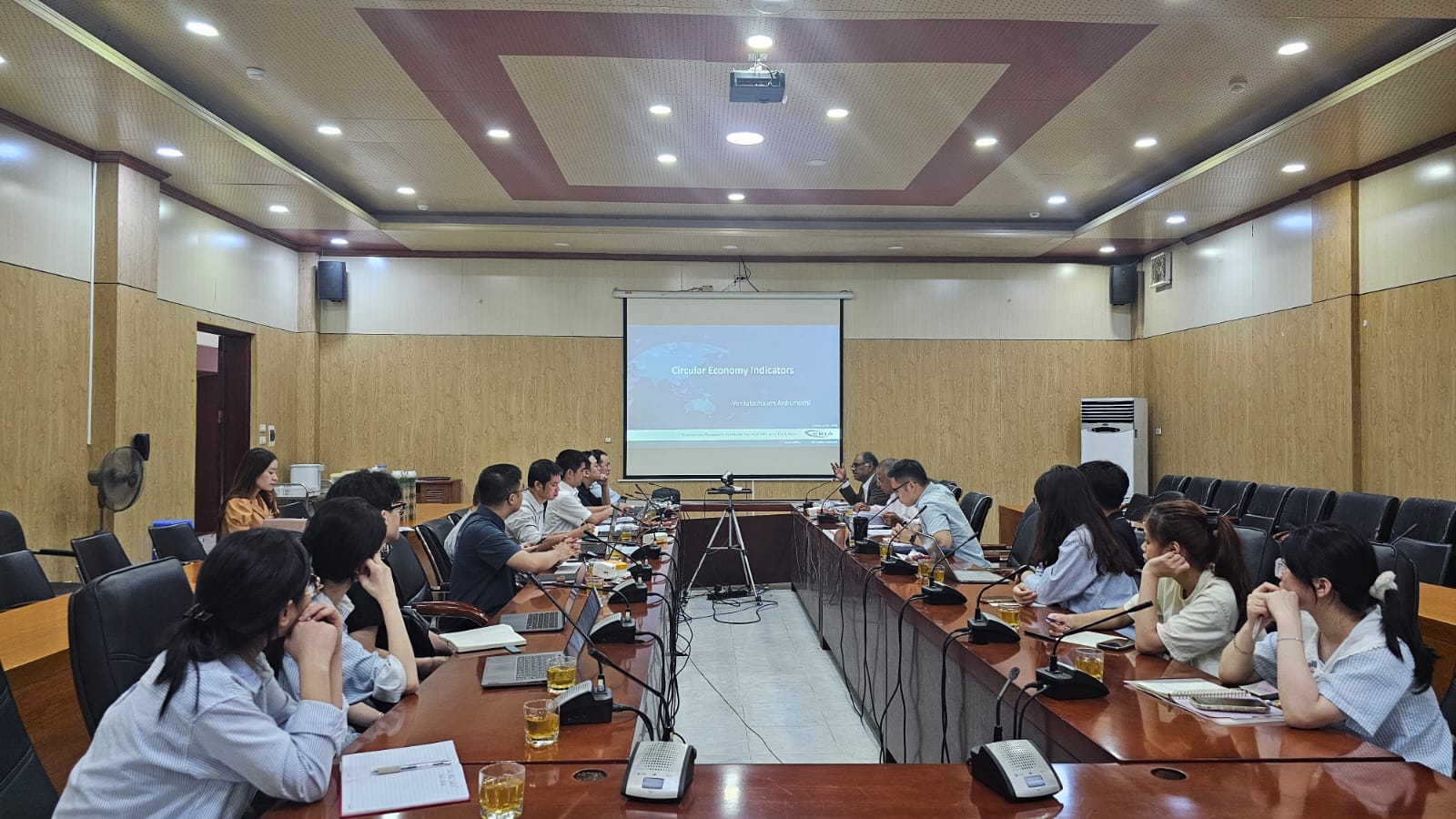Book Release: Voices of ASEAN: What Does ASEAN Mean to ASEAN Peoples?
Date:
8 August 2017Category:
News, Press ReleasesTopics:
ASEAN, ASEAN Socio-Cultural Community, ASEAN@50Share Article:
Print Article:
The Economic Research Institute for ASEAN and East Asia (ERIA), in collaboration with the Philippine Government, has embarked on the ASEAN@50 Project as part of the commemorative events to celebrate ASEAN's 50th anniversary in 2017.
In honour of ASEAN Day 2017, ERIA is releasing this second volume of the five-volume commemorative publication produced under the ASEAN@50 Project, entitled Voices of ASEAN: What Does ASEAN Mean to ASEAN Peoples? which presents the results of an ASEAN-wide survey of 2,322 respondents' aspirations, expectations, concerns, and hopes for ASEAN.
Some of the key findings of the survey include:
- Familiarity with ASEAN: Virtually all respondents were at least 'slightly familiar' with ASEAN. Three-fifths of them were 'moderately' to 'very' familiar with ASEAN. Awareness increased significantly since 2014. Respondents were mostly aware of ASEAN's economic pillar.
- Benefit from ASEAN: Two-thirds of respondents perceived their countries' membership in ASEAN as 'moderately' to 'very' beneficial. Thus, the respondents overwhelmingly considered membership of ASEAN to be a good thing. Not surprisingly, two-thirds said they would be moderately to extremely concerned if their countries were to leave ASEAN.
- Feeling of ASEAN Citizenship: More than three-fourths of all respondents felt 'moderately' to 'very much' like ASEAN citizens. Combined with those who indicated feeling 'somewhat' like ASEAN citizens, a sense of ASEAN belonging was shared by virtually all the respondents. Much of this sense of ASEAN belonging is shaped by geography. A full sense of ASEAN citizenship may call for ASEAN to be more deeply engaged and more aligned with the concerns and interests of the non-elites.
- Priorities and concerns for ASEAN: There was remarkable unanimity in the priorities and concerns for ASEAN until 2025 across the respondent groups. The most pressing concerns were non-economic ones. Thus, ASEAN belonging and identity can be strengthened by moving beyond the economic pillar.
- Aspirations for ASEAN: ASEAN peoples aspire for and largely expect an ASEAN in 2025 that is integrated, connected, resilient, and a significant voice and player in global and regional affairs. There are, however, large gaps between aspirations and expectations in the areas of good governance, equity, the environment, and human rights.
- Overlaps between national and regional priorities: When asked to rank the most pressing problems facing their country, ASEAN people were most concerned about (1) corruption, (2) income disparity and social inequality, and (3) agriculture and food security - all three of which were also included in the top five regional problems. This concordance of national and regional concerns and aspirations calls for concerted regional initiatives to be undertaken by all ASEAN Member States. Such initiatives would likely result in greater synergy among all the countries and at the same time deepen the sense of ASEAN belongingness and community.
- Aspirations for a bigger role for ASEAN: In addition to the desire for ASEAN to act collectively to address region-wide issues, such as climate change, corruption, and agriculture and food security, there was also a strong hope for ASEAN to play a bigger role as a global player.
- Media and textbooks: The role of the media and textbooks needs to be better understood and utilised to increase public awareness of ASEAN's programmes and activities.
- The ASEAN Secretariat: Overall, respondents agreed that the ASEAN Secretariat should be improved. However, among the member states, this question generated the widest divergence in responses of any of the questions.
The five volumes of the commemorative publication:
- Volume 1: The ASEAN Journey: Reflections of ASEAN Leaders and Officials
- Volume 2: Voices of ASEAN: What Does ASEAN Mean to ASEAN Peoples?
- Volume 3: ASEAN and Member States: Transformation and Integration
- Volume 4: Building ASEAN Community: Political-Security and Socio-cultural Reflections
- Volume 5: The ASEAN Economic Community into 2025 and Beyond
About ERIA
The Economic Research Institute for ASEAN and East Asia (ERIA) is an international organisation based in Jakarta. Since its founding in 2008, ERIA, through its research, supports the regional economic integration process among ASEAN member countries. As the leading economic think tank in the region and the Sherpa institution for the East Asia and ASEAN Summit process, ERIA's research and policy recommendations have influenced the policymaking process in the region.
ERIA ranked number 17 in the category Top Think Tanks in Southeast Asia and the Pacific in the 2016 Global Go To Think Tank Index (GGTTI) produced by the University of Pennsylvania's Think Tanks and Civil Societies Program (TTCSP). It is also recognised as one of the best regional studies centres in the world.
ERIA's research projects are categorised under three pillars:
- Deepening economic integration
- Narrowing development gaps
- Sustainable development
Social Media Accounts
- To connect with ERIA via Facebook visit ERIA's page
- To connect with ERIA via Twitter follow: @ERIAorg
- To follow opinion articles from ERIA researchers via Medium follow: @ERIAorg








